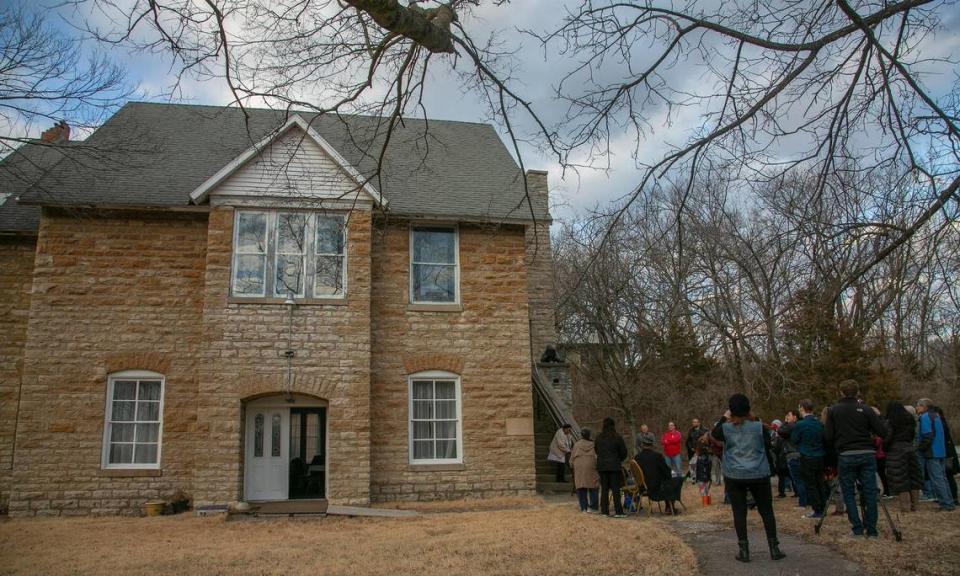‘It’s all painful’: Parkville residents rally for historic Black church after burglary
On the same hill he had played on as a kid, Michael Pearl stood before Parkville’s Washington Chapel C.M.E Church, staring at its broken stained glass window, crumbling walls and stones stained as brown as the grass under his boots.
The church had given Pearl roots in Parkville, once a “sundown town” that excluded Black people. Pearl’s formerly enslaved great uncles shaped each of the building’s stones from a nearby quarry in the 1870’s.
Now it is too dilapidated for any congregation. The only reason left for Pearl and other locals to visit is to help raise money for the church following a Jan. 21 burglary. A window memorializing the man who helped commission the place of worship was kicked in during the crime. Local law enforcement is investigating.
On Saturday evening, Pearl surrounded the building with about 30 admirers of the historic site for a vigil, where he bowed his head in prayer and listened to others retell the history of the church, so closely intertwined with his own. The event, organized by former congregants of the church, also aimed to raise $550,000 for renovations. People are invited to donate to $WashChapel through Cashapp or Paypal.ME/WashChapel.

“It’s personal in the sense that my ancestors worked on this,” Pearl said. “But it’s also personal because, my goodness, this is literally sanctified ground. I mean it’s a church.”
He remembers spending long summer nights eating dinner in the church halls. The site hosted youth programs, concerts and family reunions. For Parkville’s Black community, the church was a place of refuge.
“It’s painful. It’s all painful” said former congregant Cora Douglass Thompson, who spoke to attendees about the damage and rapidly changing neighborhood.
Her sister Pearl Douglass Spencer explained that in the late 1800s Parkville’s Black residents were forced to move their church from Main Street, a highly populated area, to the steep, tucked away hill that the historic site currently resides on. Engineering students at Park College, now known as Park University, were asked to help the formerly enslaved residents build the site by John McAfee, whose plaque was broken off the stained glass window, according to Spencer.
“People tried to put a positive spin on hate and racism,” Spencer said.
More and more Black residents moved into the area as a result of segregation, she said, and community members still constructing the church started building The Banneker School for incoming Black children.
But few of the residents were given jobs, forcing many to leave the area by the 1990’s, she said.
“It’s been horrifying,” Thompson said of witnessing the number of congregants dwindle. During the pandemic the church closed, she said, leaving it a shell of its former self.

The building could not even be used to shield attendees from the cold. Following speeches and prayer, everyone was invited to a Presbyterian church a few blocks away.
There, the sisters reunited with Pearl, who had joined the exodus from Parkville in favor of job opportunities in New York decades ago.
“My goodness the time goes by,” Thompson said to her sister, whose mouth hung open in shock.
“So much is different,” Spencer replied.
As each of them await a hopeful return to their church, they have attended services around the area, looking for a place to practice their faith. But despite all the changes, they refuse to feel displaced, Thompson said.
“As long as the history is there, I am not without a church.”

 Yahoo Movies
Yahoo Movies 